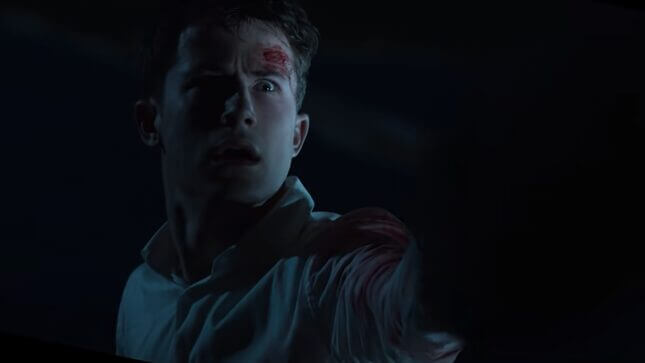

The most popular teen dramas in the past few years have been only half effective in capturing the modern American teenager’s experience. HBO’s acclaimed series Euphoria leans into graphic, embellished depictions of teen sex and drug use, but at the heart of the show are stories about addiction, self-image, and queer love that resonate across ages. Riverdale, a goth rewriting of a wholesome cartoon, does the opposite via dark escapism. In four seasons, meanwhile, the Netflix teen soap 13 Reasons Why meandered between both of those poles. There were moments that reflected the realities of young people and many episodes yanked straight from the headlines. Since the show seemed to only feed off public debates, its final season, made available last week, ends with the same tone-deaf sensationalism that made it worth discussing in the first place.
Prior to Season 4, the controversy around 13 Reasons Why largely distracted from the actual content. In Season 1, a graphic suicide scene led to petitions requesting that Netflix ban the show. Creator Brian Yorkey responded by arguing that the series wasn’t meant to be “gratuitous” but rather “painful to watch because we wanted it to be very clear that there is nothing, in any way, worthwhile about suicide.” What he and his team neglected were deeper discussions on mental health, resulting in a show that was absolutely gratuitous. In its second season, 13 Reasons Why refocused on rape, furthering its reputation as an exaggerated portrayal of the absolute worst abuses teenagers face, except devoid of nuance or clear messaging. (After inspiring a national debate among educators, the show accepted its responsibility to provide resources beyond a trigger warning at the beginning and end of each episode.)
The series tried to redeem itself in Season 3 by leaning into the kind of murder mystery that has done Riverdale well. Instead, it delivered an abortion plotline so mangled, I wondered if the show’s producers were secretly anti-choice and if they attempted to shoehorn in the fallacy that abortion is not a human right but a horrible, scary, traumatizing, painful procedure that will leave women feeling empty. Despite all its failings, 13 Reasons Why had momentum going into its final season—after Bryce Walker’s death, the question of what would happen to the students who were responsible hung heavy.
Spoilers ahead.
Season 4 opens with a funeral—teasing yet another Liberty High School student death—which quickly becomes overwhelmed with conflicts that are hard to follow: the school turns into something of a police state (commentary about school shootings that lacks any real subtlety) while the main cast and crew spend nine of the 10 episodes attempting to hide a murderous secret. It makes for a tedious viewing—even though protagonist Clay Jensen (Dylan Minnette) has begun seeing a therapist about his anxiety, depression, and dissociative episodes, the show dives into over-exposition instead of anything that might actually inform people watching about those mental illnesses.
If Jensen’s therapy sessions are meant to atone for 13 Reasons Why’s past undue depictions of trauma, they’re still oversimplified. And because those sessions lack real introspection, they’re ineffective—unfortunate, considering that they read as the show’s only genuine attempt at goodwill. But even that endeavor is cut short by the series finale. In it, Justin Foley (Brandon Flynn), this season’s only success story, returned from rehab and got clean, then dies of HIV-1. His doctor reveals to Clay that Justin must have contracted AIDs when he was addicted to heroin, homeless, and engaging in sex work with men for money and that he was likely never tested. The doctor tells Clay and his parents that it isn’t uncommon for young men to refuse to be tested in these situations out of embarrassment. Later, Clay’s therapist theorizes that Justin was never tested because he didn’t believe he was deserving of love, of life, or a second chance at either. Instead of presenting itself as a series of teachable moments, as part of its apparent mission, the show predictably sensationalizes the diagnosis, ignoring the fact that many people with HIV and AIDS live healthy lives, and advancements in medications have made that possible. Not only was Justin’s death a random addition to a show that had already rebranded as a murder mystery, but also 13 Reasons Why, which hadn’t touched on STDs until its final hour, made it seem like a death sentence.
The show’s myopia isn’t surprising. If anything, the final season proves once again that teen viewers deserved better than what 13 Reasons Why offered, and if the show is remembered in a few years, it’ll be mostly for what it failed to do.